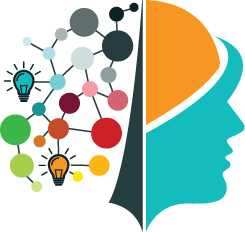Pills Don’t Equal Skills
Is it ADHD?
Is medication the right answer?
How do I fix it?
There has been a growing trend of children getting diagnosed with ADHD. Although some children do present chemical imbalances that can be considered ADHD, this label tends to be misunderstood. In most cases, difficulties in attention and hyperactivity are actually symptoms of
other challenges rather than the cause.
For some students, medication is helpful, and in some cases even necessary, but pills don’t equal skills. They only work long-term if there is a comprehensive treatment plan that looks at the whole child. These treatment plans must include academic learning, medical history, diet, and daily structure.
We believe that every child is different: our clinically tested programs are customized for the individual student’s needs, taking all of the above mentioned into account.
The good news is that attention and memory skills can be improved through specific and intensive training. The key to controlling attention is to realize how it feels to be focused, and how it feels NOT to be focused. By teaching the brain what it feels like, and through specialized working memory training, your child can improve his sustained, selective and divided attention.
These three 3 different types of attention affect learning. Do you or your child struggle with any of these?
1. Sustained attention
Commonly known as attention span, sustained attention is the ability to focus on a task for a sustained amount of time. Students with weak sustained attention skills typically drift from one activity to another without completing it.
2. Selective attention
The ability to maintain focus on a task despite competing distractions. A typical student with weak selective attention can have a hard time studying or carrying a conversation when there is competing noise or another conversation in the surrounding area.
3. Divided attention
What we know as multi-tasking allows us to pay attention to more than one thing at a time, even as new information is coming in. As a parent, you may have excellent divided attention skills if you can drive, answer your 3-year-old’s never-ending “why” questions, and set the DVD for the kids in the back seat. For a child who struggles with divided attention, she has a very difficult time taking good notes and following multi-step instructions.
Although some of these skills might come naturally to your child, others have to be trained.
To find out more information about our comprehensive training approach, you can attend a free informational parent night seminar, call the office and book a consultation, or schedule a free 10-minute phone consultation online at thecognitiveemporium.com


